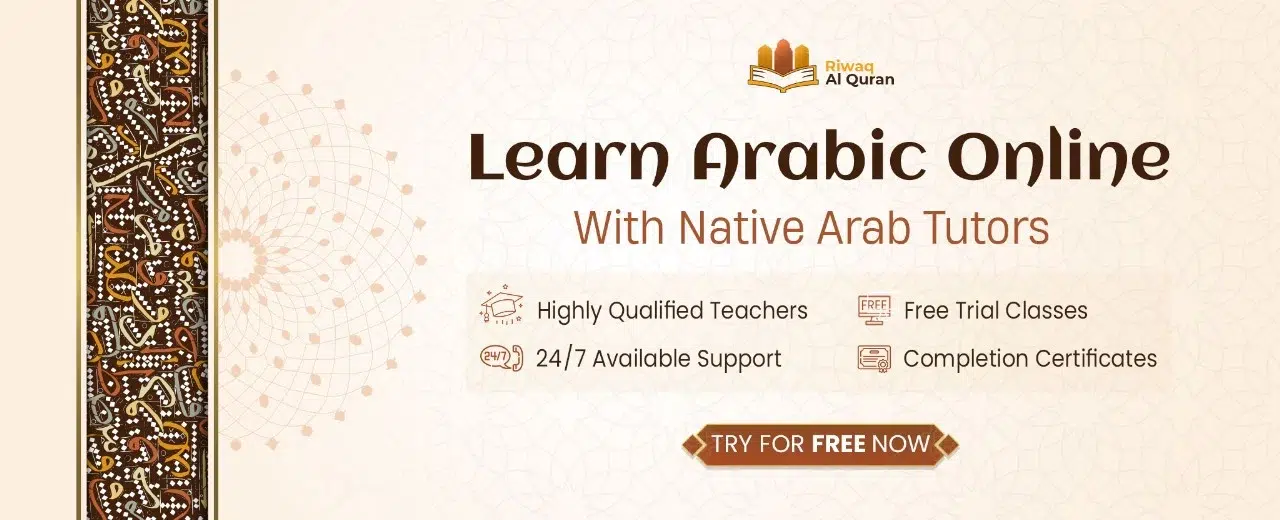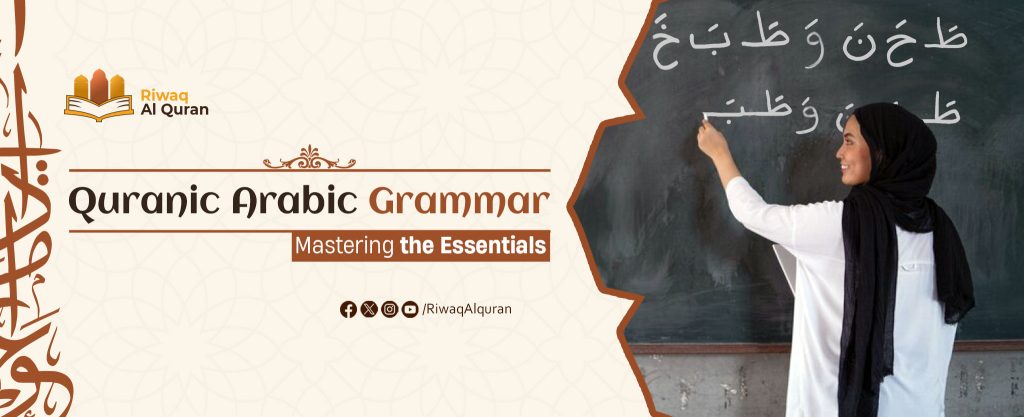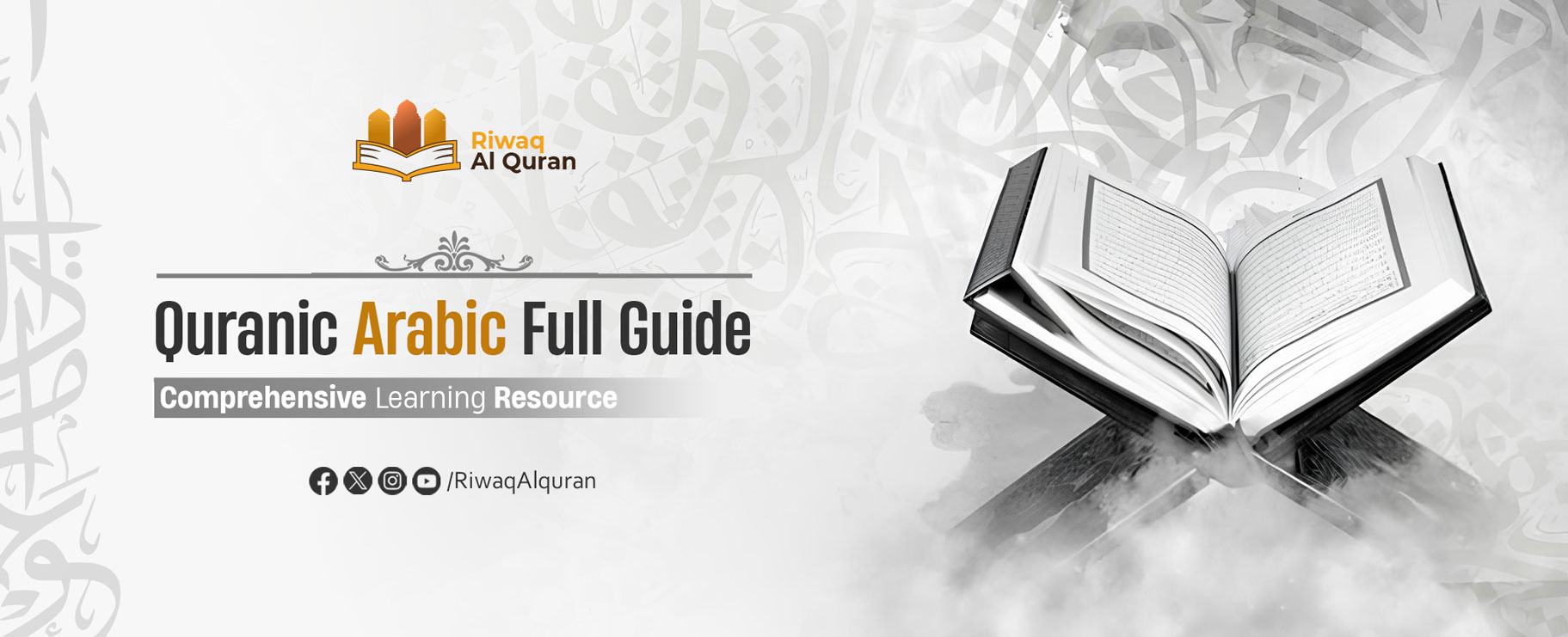Have you ever wondered the difference between Classical Arabic and Quranic Arabic? Although they share many principles and basic concepts, they are not identical. Do you know?
Furthermore, What about Quranic Arabic itself? Where does it come from? If you’re here, you’re probably interested in learning Quranic Arabic but don’t know where to start.
In this guide, we’ll look at useful methods for learning the fundamentals of Quranic Arabic grammar and vocabulary, as well as how to choose the perfect teacher to help you along the way. Let’s dive in together!
Table of Contents
What Is Quranic Arabic?
The Quran was revealed more than 1400 years ago in Quranic Arabic, also known as Classical Arabic. This maintaining variety of Arabic differs from the current dialects spoken today. With its precise and extensive vocabulary, this language can explain complex thoughts with a few words.
Furthermore, Quranic Arabic has a strong influence because of the profound meaning associated with every word, vowel, and letter. As a result, understanding the Quran allows you to connect with it more deeply.
When it comes to “learning Quranic Arabic,” this concept focuses on all of the many forms of Arabic used in the Quran, which strongly emphasizes comprehending the language and terminology used in the Mushaf (The holy book of Islam).

What Is the Importance of Quranic Arabic?
Quranic Arabic holds immense significance for Muslims around the world. Here’s why:
1. Understanding the Quran:
Since the Quran is revealed in Arabic, learning Quranic Arabic is crucial for understanding its teachings directly. It enables Muslims to comprehend the divine guidance, commandments, stories, and wisdom contained within its verses.
2. Preserving the Integrity of the Quran:
Quranic Arabic ensures the preservation of the Quran’s original text. By learning Quranic Arabic, Muslims can accurately recite and understand the Quran without relying solely on translations, which may not fully capture the nuances and depth of the Arabic language.
3. Spiritual Connection:
For Muslims, reciting and understanding the Quran in its original language fosters a deeper spiritual connection with Allah. It allows them to engage more profoundly with the divine message, experience its beauty, and derive guidance for their lives.
4. Prayer and Worship:
Many Islamic rituals, including the five daily prayers, involve recitations from the Quran in Arabic. Understanding Quranic Arabic enhances the spiritual experience of prayer and worship, enabling Muslims to connect more intimately with Allah during their acts of devotion.
5. Scholarly Pursuits:
Quranic Arabic serves as the foundation for advanced Islamic scholarship, including Quranic Tafsir, Hadith studies, Fiqh, and theology. Proficiency in Quranic Arabic is essential for those pursuing knowledge in Islamic sciences.
6. Cultural Heritage:
Quranic Arabic is deeply intertwined with Islamic culture and heritage. Learning this language allows Muslims to appreciate the rich literary tradition of Arabic literature, poetry, and calligraphy, which have been influenced by the Quran for centuries.
7. Community Connection:
Proficiency in Quranic Arabic fosters a sense of unity and belonging within the Muslim community. It enables Muslims from diverse backgrounds and regions to come together, recite the Quran, and engage in religious discussions without language barriers.
8. Educational Legacy:
Throughout history, Islamic civilization made significant contributions to various fields, including science, medicine, and philosophy, using Arabic as the medium of scholarly exchange. Understanding Quranic Arabic provides access to classical Islamic texts and facilitates the study of this intellectual heritage.
9. Linguistic Appreciation:
Quranic Arabic is renowned for its eloquence, precision, and linguistic beauty. Learning this language allows individuals to appreciate the intricate grammatical structures, rhetorical devices, and poetic expressions used in the Quran, enriching their understanding of the Arabic language as a whole.
Overall, Quranic Arabic is not just a language; it’s a key to unlocking the treasures of the Quran and deepening one’s faith and understanding of Islam.
What Are The Quranic Arabic Alphabet And Letters?
The alphabet is one of the first things you’ll need to master when studying Quranic Arabic. Briefly, it consists of 28 letters that form the basis of both spoken and written Arabic words.
Also, these letters appear the same in Modern Standard Arabic, but when reciting the Quran, we follow certain pronunciation criteria to maintain the language’s authenticity!
Check the following diagram that shows the Arabic letters and its proper pronunciation in English:
In addition, to further illustrate the pronunciation of Quranic letters, we would like to provide the following brief examples:
- Strong and weak Letters: The letters “ص” (Saad) and “ض” (Ḍād) have a deep, heavy sound, while “س” (Seen) and “ت” (Ta) are articulated with a softer tone.
- Throat Letters: Arabic has various throat sounds, including “ح” (Haa) and “ع” (Ayn). These might appear unusual at first, but with practice, they will become a lot simpler to speak.
To summarize, Quranic Arabic is known for its accurate pronunciation based on Tajweed regulation (Quranic recitation criteria). Even tiny mispronunciations can change the meaning of a word, so acquiring this ability is essential.


What Is The Quranic Arabic Phonology?
Firstly, phonology refers to a branch of linguistics that examines sound systems inside or between languages.
To distinguish between classical and Quranic Arabic:
According to Modern Standard Arabic, it has 28 consonant phonemes and 6 vowel phonemes. In particular, all phonemes vary between “emphatic” (pharyngealized) and non-emphatic consonants. Many of these sounds have become embedded in modern dialects, while others were formed through acquisition or phonemic divides.
In contrast, understanding phonology is required for accurate recitation in Quranic Arabic. It also includes how consonants, vowels, nouns, and verbs interact to form the language’s structure.
1. Quranic Arabic Consonants:
Arabic consonants have a melodious character due to the way they sound at different mouth and throat locations. Certain letters, such as “ص” (Saad) and “ك” (Kaaf), may take some work to learn, but with enough repetition, you’ll soon find them easier to pronounce correctly.
2. Quranic Arabic Vowels:
The Arabic language has three main short vowels: Fathah (فَتْحَة), Kasrah (كَسْرَة), and Dammah (ضَمَّة). These vowels are identified by unique markers placed above or below the letters. Also, Arabic includes three long vowels: Alif (ا), Waw (و), and Yaa (ي).
The Arabic language has three main short vowels: Fathah, Kasrah, and Dammah. These vowels are identified by unique markers placed above or below the letters.
As well, long vowels extend the sound of a word, thus understanding them is critical for good recitation. Check these examples:
- The term “fathah” (pronounced the T and H) refers to the short “a” sound, in the word “bat”
- The term “Kasrah” refers to the short “i” sound, in the word “bat”
- The term “Dammah” refers to a short “u” sound, in the word “put”
3. Nouns In Quranic Arabic
Nouns in Quranic Arabic follow certain patterns, originating from three-letter origins. For instance, the root’s word “ك-ت-ب” (K-T-B) gives rise to words like kitab (book), maktab (office), and kataba (he wrote).
4. Verbs In Quranic Arabic
verbs change in Arabic form depending on the tense they are used in, which is classified into three types: past, present, and command. They are also influenced by the number of participants and their gender.
| Verbs in English | Verbs in Arabic | Pronounciation in English |
| Understand | فهم | fahima |
| Speak | ينام | tahaddatha |
| Run | ركض | rakaḍa |

Where To Learn Quranic Arabic?
After exploring all these definitions as well as the structure of Quranic Arabic, you’re undoubtedly wondering, “Where can I find a good place to learn Quranic Arabic?” Actually, there are plenty of resources available, and the best choice for you will depend on how you learn best and what you aim to achieve.
1. Online Platforms:
Riwaq Al Quran Academy: our platform stands out for its organized approach to learning. We provide tailored courses for beginners and intermediate learners in Quranic Arabic and other courses like Learning Tajweed and Quran with private tutors or in online groups.
Bayyinah TV: A digital channel founded by Nouman Ali Khan and provides a huge diverse of courses targeting beginners and non-Arabic speakers learners. This platform also offers comprehensive courses in Quranic Arabic, by simplifying the grammar and vocabulary of the Quran and classical Arabic.
Arabic for All: One of the biggest and most credible websites that includes excellent free materials, lessons, and worksheets for learners.
2. Local Mosques:
Numerous mosques provide Quranic Arabic classes within their community initiatives. These classes can be particularly beneficial if you enjoy learning alongside others or require face-to-face assistance.
3. Private Tutors Sessions:
Websites such as Muslimeto and Preply enable you to connect with Quranic Arabic tutors who can customize lessons to fit your learning speed and proficiency.

What Are The Best Apps For Learning Quranic Arabic?
Let’s admit it, applications right now are a game changer for anyone, especially if you are trying to learn Quranic Arabic. Here are some of the best app to learn Quranic Arabic that we have found to be really useful:
1. Quran Companion: it’s one of the most recommended apps we can do! This application makes learning Quranic Arabic easier with its interesting quizzes and progress monitoring tools. You can also connect with others in learning groups to gain motivation.
2. Quranic: This user-friendly application teaches Quranic vocabulary through flashcards and engaging exercises, making it a perfect choice for those looking to improve their grasp of the terms in the Quran.
3. Memrise Arabic: This is a well-known application for its language courses not only for Quranic Arabic! Memrise app provides Quranic Arabic lessons that focus on vocabulary and phrases, making it easy to understand the foundations.
4. Madinah Arabic: This is an excellent pick for beginners! This application offers lessons in grammar, vocabulary, and pronunciation, beginning with the basics and other complicated topics.
Read more about Quranic Arabic Vs. The Other Forms Of Arabic (Normal Arabic And Modern Arabic)

Learn Quran, Arabic And Islamic Studies Online
Riwaq Al Quran is a comprehensive online platform that offers personalized Quran, Arabic and Islamic Studies Online classes for individuals of all ages and backgrounds.
Their experienced instructors use a structured curriculum to cover Tajweed, Tafsir, and Memorization, providing easy and effective access to learning the Quran.
The advanced online classes allow for seamless communication and interaction between students and teachers. Join Riwaq Al Quran for a deeper connection with the Quran.
We offer several courses such as:
- Online courses for kids.
- Online Quran classes for kids and adults.
- Online Arabic courses
- Online Ijazah courses
- Online Islamic Studies courses.


Conclusion
The journey of learning Quranic Arabic is truly a wonderful experience that surely will deepen your relationship with the Quran.
It might feel a bit daunting at the beginning, but with the right tools, a bit of patience, and consistent effort, you’ll see yourself making progress little by little.
Start your journey today, even if it’s just mastering one letter or word. Before long, you’ll be able to read and comprehend the sacred text with a richer understanding and connection. May Allah ease your path and make it fulfilling!


































